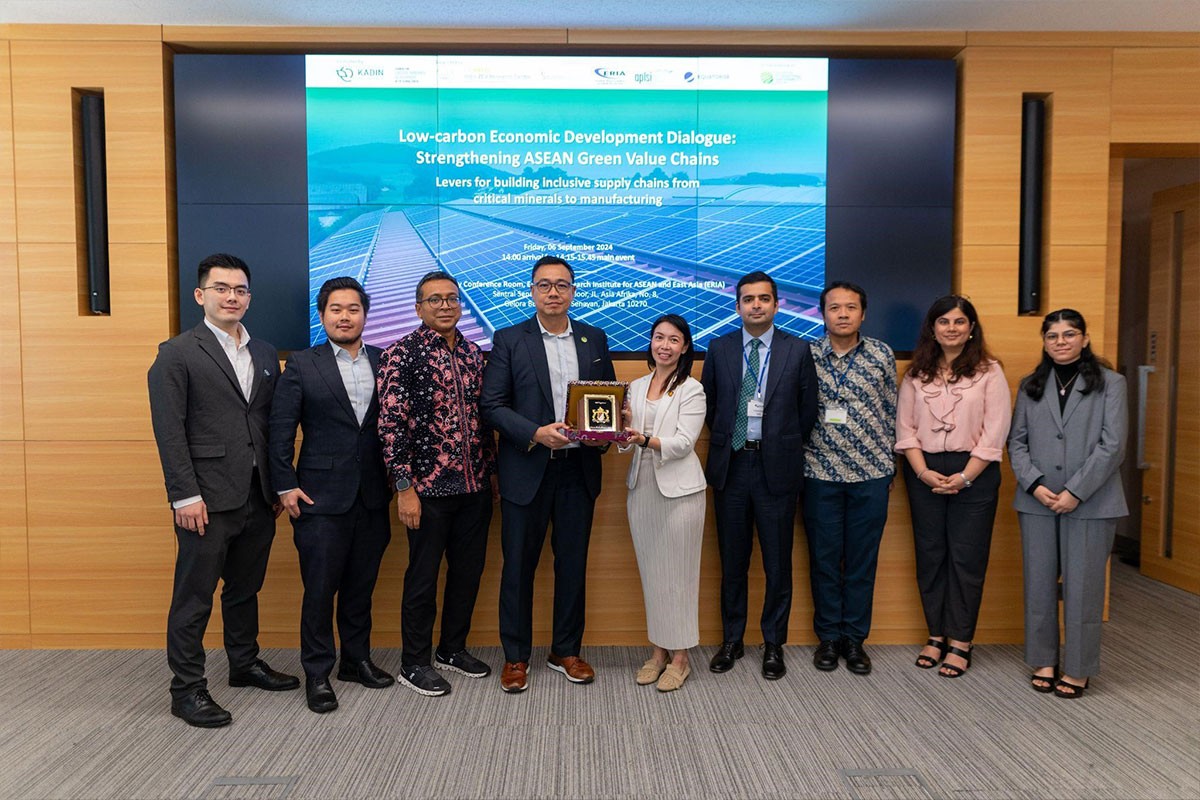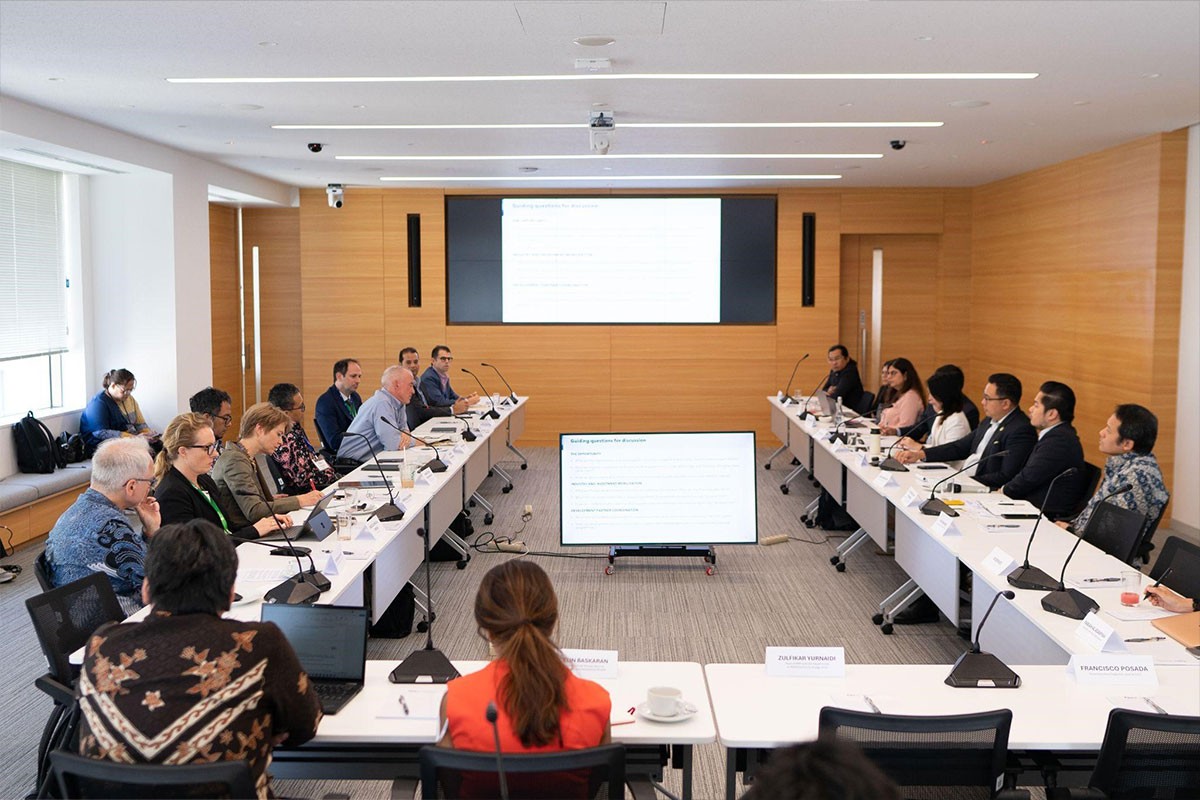Low-Carbon Economic Development Dialogue: Strengthening ASEAN Green Value Chains
On the sidelines of the Indonesia International Sustainability Forum 2024, The Indonesian Chamber of Commerce and Industry (KADIN) Net Zero Hub, in collaboration with the Council on Critical Minerals Development in the Global South and KADIN Net Zero Hub hosted a dialogue event titled “Low-Carbon Economic Development Dialogue: Strengthening ASEAN Green Value Chains.”
The event was attended by over 30 leaders from governments, the private sector, financing institutions, and multilateral development agencies to identify the essential levers of change needed to support the further development of local and regional value chains for energy transition solutions in Indonesia and Southeast Asia and the role of south-south cooperation.
Key Discussions
The event was opened by Divyam Nagpal, Principal Specialist in Renewable Energy at SEforALL, setting the scene for the levers for critical minerals and local renewable energy value chain development in Southeast Asia and the role of south-south cooperation. Divyam highlighted the importance of trade collaboration, infrastructure development, and the establishment of regional standards and green manufacturing strategies. He emphasized the need for evidence-based analysis to guide regional cooperation and proposed the creation of a one-stop platform to address ecosystem challenges.
Discussions during the event focused on three main areas:
- Identification of strategies to enhance value chains for electric mobility, solar PV, and energy storage in Southeast Asia. Key focus areas included overcoming technology and investment challenges to leverage the region’s potential in these sectors.
- How industrial clusters and SEZs can boost local value chains by improving processes for critical minerals and battery manufacturing. Emphasis was placed on creating supportive infrastructure and standards.
- The importance of strengthening regional cooperation and South-South engagement through collaborative trade, technology sharing, and financing mechanisms. A regional financing hub and evidence-based policies were proposed to support these efforts.
Key Remarks
Dr Alloysius Joko Purwanto, Energy Economist at ERIA, said: "ASEAN countries are joining the global push towards net zero emissions, reflecting our commitment to international cooperation. Electrification is key to increasing energy efficiency and reducing pollution."
Matthew Wittenstein, Chief of Section for Energy Connectivity at UN ESCAP, said: "The Asia Pacific region is the centre of the value chain. This is a big opportunity for ASEAN to play a significant role in the global mineral development process."
Burkhard Hinz, Country Director at KfW Development Bank, said: "Germany’s experience with renewable energy highlights that broad industry subsidies can be costly and inefficient in the long run. A more sustainable approach is needed to ensure long-term effectiveness."
Dharma Djojonegoro, CEO of Adaro Power, said: "While the Indonesian government aims to downstream the value chain, current demand constraints have led to exports, particularly to Singapore."
Chinmayi Shalya, Senior Fellow at Swaniti Global, said: "The growth of the critical minerals industry must be equitable and aligned with social realities. Effective community engagement and equitable distribution of benefits are crucial."
Commitment to Collaboration
The event concluded with a strong commitment to ongoing dialogue and action. Jacqueline Lam, Regional Director for Asia at SEforALL, and Arthur Simatupang, Chairman of Indonesian Independent Power Producers Association (APLSI), emphasized the importance of collaboration, innovation, and equitable development.



